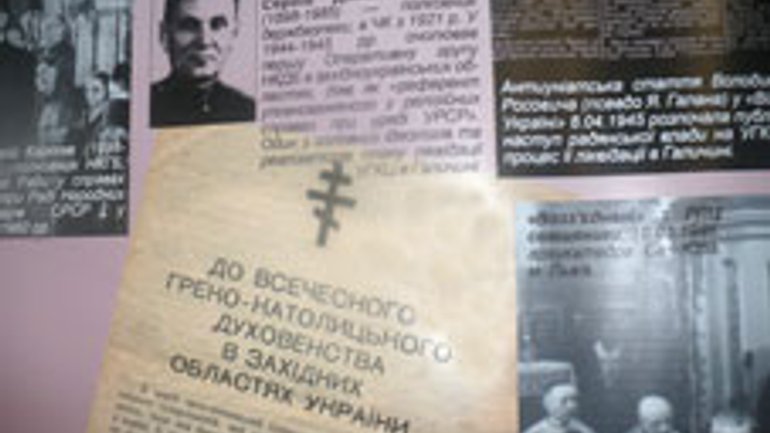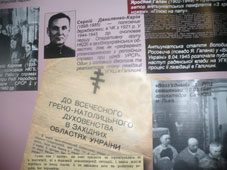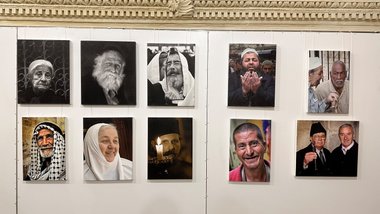“Churches were simply returned to its owner” – the UGCC Points to Historical Facts

 LVIV — “Allegations that the Greek Catholics violently took away Orthodox churches are absolutely untrue. They simply returned them to its owner. And we in letters to the top authorities mention that such assertions we heard, but where is the proof that those are your churches? Please let someone give some notarized and reliable evidence because we do not know of any,” Patriarch Lubomyr, the head of the Ukrainian Greek Catholic Church (UGCC), reported in an interview to the magazine Glavred.
LVIV — “Allegations that the Greek Catholics violently took away Orthodox churches are absolutely untrue. They simply returned them to its owner. And we in letters to the top authorities mention that such assertions we heard, but where is the proof that those are your churches? Please let someone give some notarized and reliable evidence because we do not know of any,” Patriarch Lubomyr, the head of the Ukrainian Greek Catholic Church (UGCC), reported in an interview to the magazine Glavred.
According to the Institute of Church History of the Ukrainian Catholic University (UCU), before the beginning of World War II the Ukrainian Greek Catholic Church counted 2,387 parishes with the 3.6 million faithful, including 2,352 eparchial priests, 31 men’s and 121 women’s monasteries, and monastic houses. Under the care of the Church operated a theological academy and three spiritual seminaries where 480 students studied.
In addition to the already well known fact that Lviv’s “council” of 1946 was a pseudo-church event organized by the state authority of the USSR with the active participation of organs of state security, the Institute of Church History presented a series of documents that were found as evidence of this fact in the Branch State Archive of the Security Service of Ukraine and the Central Archive of Public Organizations of Ukraine.
“To organize an Orthodox eparchy in Lviv, to put at its head a bishop with the title of Bishop of Lviv and Ternopil who will unite Orthodox parishes of Lviv, Stanislaviv, Drohobych, and Ternopil regions… To organize inside of the Uniate Church an initiative group that will declare the breaking with the Vatican and call the Uniate clergy to convert to Orthodoxy,” such directives were set by the Instruction № 58 from the 15th of March, 1945, which were made by the head of the Council on Matters of the Russian Orthodox Church of the Council of Ministers of the USSR, G. Karpov, and was personally ratified by Joseph Stalin for the realization by the combined efforts of the party administration, state structures, and organs of state security in collaboration with the Russian Orthodox Church.
The fact of mass proselytization, that is the universal establishment of the supported religion, is also confirmed the letter of G. Karpov from September 24, 1949, to the leader of Central Committee of the Communist Party (Bolsheviks) of Ukraine N. Khrushchev, in which is reported: “From 1946 to August 1949 were reunited 3,001 Uniate parish churches, 1,242 priests, 463 deacons, and 1,018 psalmists in the Zakarpattya, Drohobych, Lviv, and Stanislav regions.”
After the long-term prohibition of legal activity, the UGCC was renewed in November 1989 on the basis of a decision of the Council on Religions of the Council of Ministers of USSR, in which the Church was allowed to register and found communities. In relation to this, Patriarch Lubomyr noted in his interview for Glavred that “the then president of the USSR Gorbachev went to Pope John Paul II and knew that in Rome he would be asked the following question: and what is with the Greek Catholics? Therefore, the Soviet government about a week before the visit set the directive regarding the registration. But what happened? If people in some community said that they want to remain in the Orthodox Church, they were not reregistered. And about a thousand communities at once said that they want to return to the Greek Catholic Church.”
According to the Information Department of the UGCC, more details with materials from the Soviet archive about the destruction of the UGCC, and also other documented testimonies from the period of prohibition, the underground activity, and revival of the Church can be found in the exhibition dedicated to the 20th anniversary of the legalization of the UGCC, which is coming to an end in Kyiv. (Starting February 14, as part of the exposition program, the photo exhibition “Toward the Light of Resurrection through the Thorns of Catacombs” will continue in the museum of the city of Brody, in the Lviv region).










